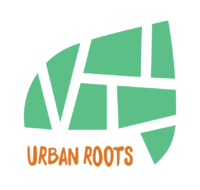2016 Grant Awardee Urban Roots
 Urban Roots aims to use urban agriculture as a platform for community education and empowerment, and intends that future years will continue to help them serve and partner with the good work in the Madison neighborhood.
Urban Roots aims to use urban agriculture as a platform for community education and empowerment, and intends that future years will continue to help them serve and partner with the good work in the Madison neighborhood.
They have worked for years to develop their no till bio-intensive farming methods and are excited to continue those practices with new varieties. They are confident that these practices along with their focus on empowerment and education will help the long-term social and ecological viability of their farming methods in their new neighborhood. They intend to focus specifically on heirloom beans, okra, collards, tomatillos, and other crops that are traditional to the African-American and Latino populations represented in their community of Madison. Currently they are forging relationships with Madison Square Church, LINC, Bethany Christian Services Center for Community Transformation, and many of their area neighbors. Secondly, they are utilizing equipment for seed saving including a filing cabinet, screens, envelopes, and drying racks. Their goal is that they may begin to build a small library of saved seeds for future distribution into their neighborhood, continually building the social and ecological resiliency of their neighborhood through local foods, biodiversity, and social enterprise.
With their move to a multicultural region of Grand Rapids, they greatly desire to focus on culturally rich foods. According to the Community Research Institute, the Madison neighborhood of Grand Rapids in 2013 was 59.3% Black / African American, 15.3% Hispanic / Latino, and 19.3% White / Caucasian. Because of this ethnic diversity in addition to the food insecurity in the region, they intend to focus specifically on foods traditionally adapted for ethnic cuisine. In recent weeks, this includes many of their neighbors asking them if we will grow: okra, collards, tomatillos, beans, and traditional corn varieties. They intend to expand upon these through further conversations with their neighbors to discover what fruits and vegetables are important to their specific food heritage. Currently they hope to acquire seeds from Baker Creek Seeds, Fedco, and Seed Savers. Additionally, they hope to acquire some seeds that are a part of Slow Food Ark of Taste catalog.
The Urban Roots farm is located in a region where “According to the latest census Madison Square neighborhoods had a median income of $19,605 with approximately 30% of households in the area earning under $10,000 a year. Only 45% of homes are owner occupied, which is significantly lower than the City (60%) or County (70%).” With this grant, they plan to focus on three objectives for introducing and promoting this product to the local marketplace.
First, they aim to introduce new varieties into their weekly CSA share that will be distributed predominantly in the Madison / Southtown Neighborhood. Entering our third year of a CSA, we have focused on a mix of hybrids and heirlooms, and distributed predominantly through the Midtown Neighborhood at the Fulton Street Farmers Market.
This year they will heavily focus on accessibility through the use of DoubleUp Food Bucks / SNAP benefits for area neighbors. Their home is now in an area that is traditionally considered one of the “food deserts” of Grand Rapids, and they specifically chose this location to begin building their urban farm and education center due to the current lack of fresh food options.
Second, through their mobile classroom program, they would like to increase the knowledge of seed diversity to the gardens of their community partners in Grand Rapids. Next year they will be partnering with five area organization gardens, including schools and food pantries. With these partnerships, they will have tremendous opportunity to increase knowledge of and understanding of heirloom varieties, and they will be able to assist in further distribution to these regions with this grant.
Finally, they will be having a large plant sale in mid-May, and with dollars for seed saving materials, they would like to begin to develop a small community-based seed saving library which they could use for future years. Thus their plant sale will focus not only on distribution of heirlooms, but also on future distribution of some of those seed varieties. They intend that these seeds will not only help them grow crops at Urban Roots, but also within and throughout gardens in the entire region.
Grant Application Information
